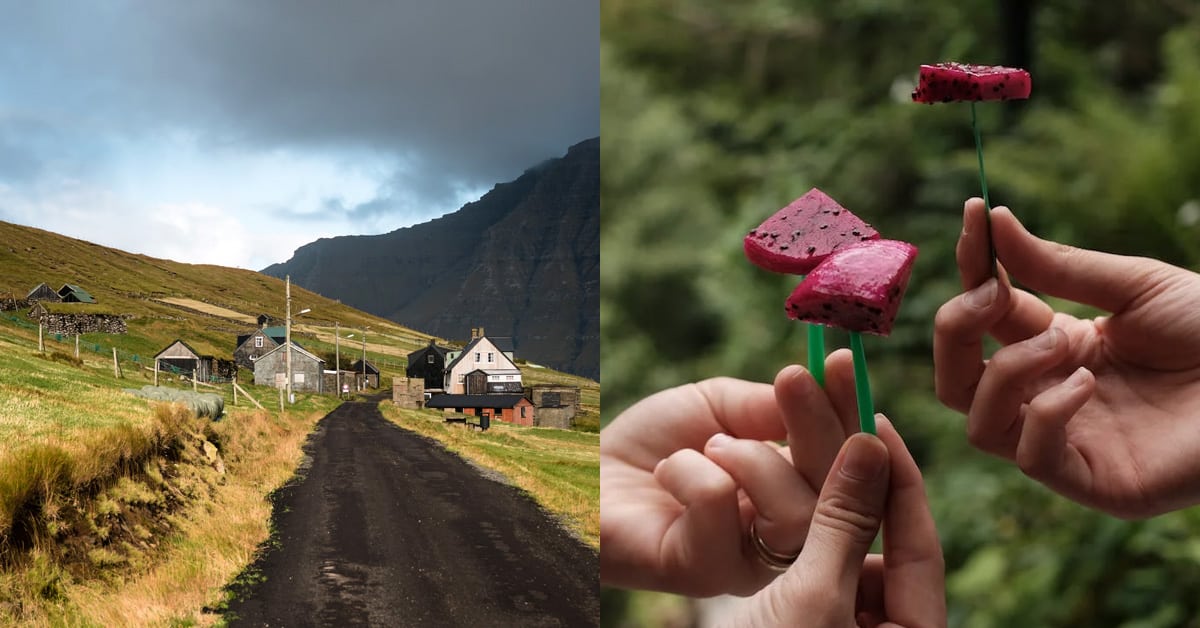Faroese cuisine is a unique blend of traditional Nordic and Scottish influences, with a focus on locally sourced ingredients. The Faroe Islands, located in the North Atlantic Ocean between Iceland and Norway, have a harsh climate and rugged terrain, which has shaped the islanders’ diet over the centuries.
Fish and seafood are staples of Faroese cuisine, with salmon, cod, and haddock being the most commonly consumed. Lamb is also a popular meat, as sheep farming is a significant industry on the islands. Faroese food is known for its simplicity and freshness, with many dishes featuring only a few ingredients.
Faroese cuisine halal or not?
Is Faroese food halal?
As a general rule, if Faroese food contains meat, it is important to check if the meat is halal or not. Halal meat is prepared according to Islamic dietary laws, which involves slaughtering the animal in a specific way and reciting a prayer.
If the meat is not halal, it is not permissible for Muslims to consume. It is recommended to check with the restaurant or food supplier for more information on the halal status of Faroese food.
What kind of food do Faroese eat?
The Faroese diet consists mainly of seafood, including fish, whale, and seabirds. They also eat lamb, potatoes, and other root vegetables.
Dairy products such as cheese and skyr (a type of yogurt) are also common. Traditional Faroese dishes include ræst kjøt (dried and fermented lamb), skerpikjøt (dried and salted mutton), and grind og spik (pilot whale meat and blubber).
How can you tell if the food is halal in Faroe Islands?
You can look for halal certification or ask the restaurant or food supplier if their products are halal. You can also check if the ingredients used in the food are halal. If you are unsure, it is best to avoid consuming the food.
Is it hard to find halal food in Faroe Islands?
It may be difficult to find halal food in Faroe Islands as the majority of the population is Christian and the concept of halal food is not widely known or practiced.
However, some restaurants may offer vegetarian or seafood options that are suitable for Muslim dietary restrictions. It is recommended to contact restaurants in advance to inquire about their menu options.
Is Faroese food healthy?
Faroese food is generally considered healthy as it is based on fresh and locally sourced ingredients such as fish, lamb, and vegetables.
However, some traditional dishes may be high in fat and salt, such as fermented lamb and whale meat. It is important to consume these foods in moderation and balance them with other healthy options.
What is Faroese food similar to?
Faroese food is similar to other Nordic and Scandinavian cuisines, with a focus on seafood, lamb, and root vegetables. Some dishes may also be similar to Icelandic or Danish cuisine.
Steps to find halal food in Faroe Islands
Here are some tips to find halal food in Faroe Islands:
- Research online: Look for halal food options in Faroe Islands by searching online. You can use search engines like Google or Bing to find halal restaurants or grocery stores in the area.
- Ask locals: Ask locals or other Muslims living in Faroe Islands for recommendations on where to find halal food. They may be able to provide you with valuable information about the availability of halal food in the area.
- Check with the local mosque: Contact the local mosque in Faroe Islands and ask if they have any information about halal food options in the area. They may be able to provide you with a list of halal restaurants or grocery stores.
- Look for halal certification: When visiting a restaurant or grocery store, look for halal certification. This will ensure that the food is prepared according to Islamic dietary laws.
- Read labels: When shopping for food, read the labels carefully to ensure that the ingredients are halal. Look for products that are certified halal or have a halal symbol on the packaging.
- Cook your own food: If you are unable to find halal food options in Faroe Islands, consider cooking your own food. You can purchase halal meat and other ingredients from online stores or specialty shops.

